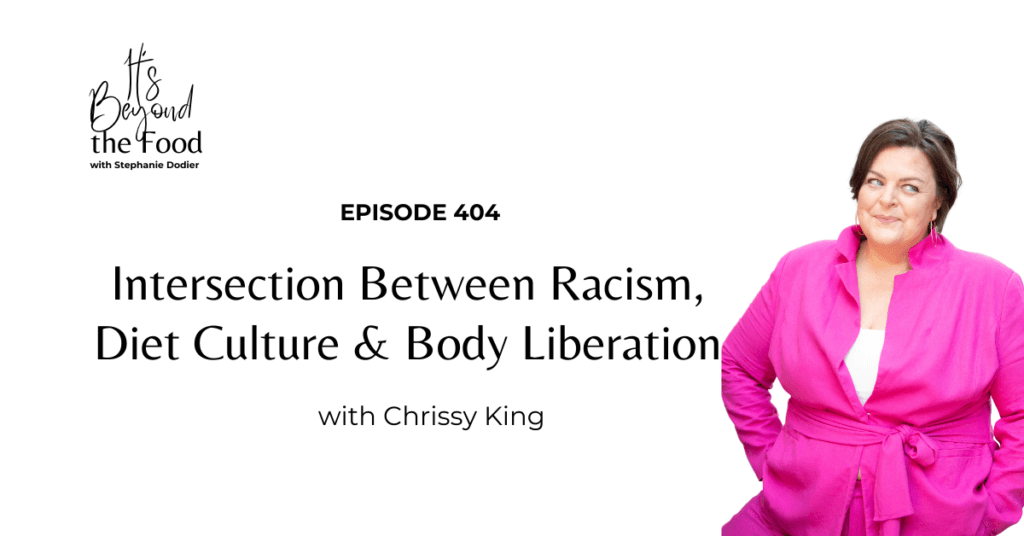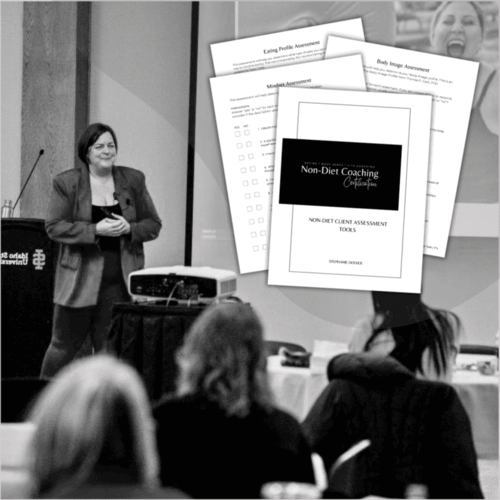Exploring the Intersection Between Racism, Diet Culture & Body Liberation with Chrissy King
I recently had the privilege of speaking with Chrissy King, author of “The Body Liberation Project.” Our conversation shed light on the complex relationship between racism, diet culture, and body liberation. This eye-opening discussion revealed how these interconnected issues shape our society and personal experiences.
Understanding Body Liberation
Defining Body Liberation
Chrissy defines body liberation as a multifaceted concept. It goes beyond merely loving one’s body. Instead, it encompasses:
1. Recognizing our bodies as vessels for human experience
2. Understanding that perfect body acceptance is unrealistic
3. Striving for a world where all bodies can exist free from harm
Chrissy emphasizes that true body liberation cannot exist without collective freedom. This perspective challenges us to consider how systemic oppression affects different bodies in our society.
The Limits of Body Positivity
While body positivity has gained popularity, King points out its limitations. Mainstream body positivity often focuses on personal body image issues without addressing systemic oppression. This narrow view fails to acknowledge how factors like race, gender, and ability impact our body experiences.
The Historical Roots of Diet Culture and Racism
Tracing Diet Culture to Slavery
Our discussion uncovered the historical connection between diet culture and racism. Chrissy referenced Dr. Sabrina Strings’ work, which traces the origins of diet culture to the era of slavery. This period saw the emergence of body hierarchies used to justify oppression.
The Weaponization of Body Image
Throughout history, body image has been weaponized to control marginalized groups. As a black woman, King shared insights on how black bodies have been stigmatized. Similarly, as a woman, I reflected on how female bodies have been scrutinized and controlled.
The Impact of Diet Culture on Personal Freedom
Breaking Free from Body Compliance
Chrissy described how liberating herself from diet culture opened up her world. By rejecting societal body standards, she found the courage to make significant life changes. This transformation highlights how body liberation can lead to broader personal empowerment.
Recognizing Body Politics
Our conversation emphasized that bodies are inherently political. The way society treats different bodies reflects and reinforces power structures. Recognizing this connection is crucial for understanding the broader implications of body image issues.
Intersectionality in Health and Wellness
The Importance of Diverse Perspectives
Chrissy stressed the need for an intersectional approach in health and wellness. Factors like racism, homophobia, and ableism significantly impact health outcomes. Ignoring these aspects provides an incomplete picture of wellness.
Challenging Privilege in Wellness Spaces
We discussed how privilege allows some people to view gyms and wellness spaces as apolitical. However, for marginalized individuals, these spaces often reflect broader societal inequalities.
Steps Toward Body Liberation
Starting Your Body Liberation Journey
For those new to body liberation, Chrissy recommends:
1. Starting small and being patient with yourself
2. Consuming diverse body representations in media
3. Critically examining the content you engage with online
The Power of Representation
We highlighted the importance of seeing bodies like yours represented positively. This representation can be transformative, especially for those who don’t fit conventional beauty standards.
Conclusion: Intersection between racism & diet culture
This conversation with Chrissy King illuminated the deep connections between racism, diet culture, and body liberation. By understanding these intersections, we can work towards a more inclusive and liberating approach to body image and health.
What you’ll learn listening to this episode on the intersection between racism, diet culture:
- Body liberation is interconnected with dismantling systemic oppression
- Diet culture has historical roots in racism and slavery
- An intersectional approach is crucial in health and wellness
- Representation of diverse bodies is powerful in promoting body acceptance






